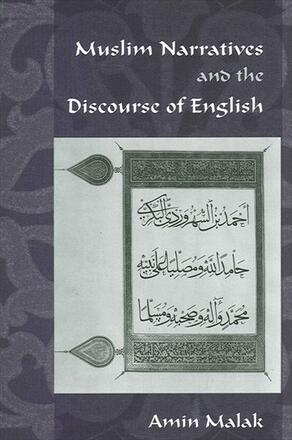
Muslim Narratives and the Discourse of English
Examines novels and short stories by Muslim authors who write in English.
Description
This is the first book to explore the works of Muslim authors who write in English yet take their inspiration from Islam. Through close readings of novels and short stories by Salman Rushdie, Ahmed Ali, Attia Hosain, Nuruddin Farah, and others, Amin Malak reveals their aesthetic and discursive merits as well as their idiomatic and metaphorical enrichment of the English language. He explores the many implications of writing about one culture (and language) from within another, including the ambivalent attitudes many of these writers have toward English, a language associated with a colonial past yet adopted as a medium of artistic expression and a critical tool for demystifying and dealienating Muslims and their culture. Malak's analysis shows how Islam, as a critical identity signifier in the contemporary world, informs these texts' discursive foundations and thus becomes crucial for understanding Islam.
Amin Malak teaches English and Comparative Literature at Grant MacEwan College.